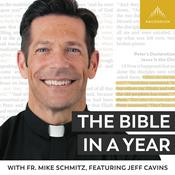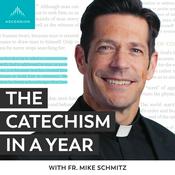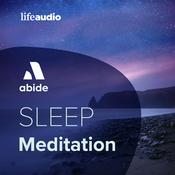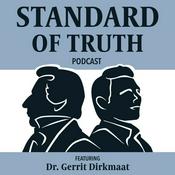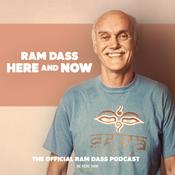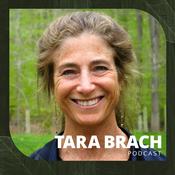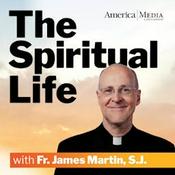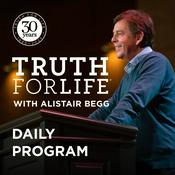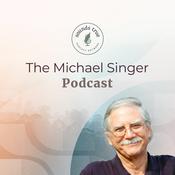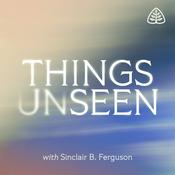436 episodes

The Tao Te Ching ~ The Book of the Way ~ Lao Tzu
1/07/2026 | 22 mins.
A reading for meditation of selected verses from the The Tao Te Ching - translation by Tolbert McCarrollThe Tao Te Ching or Dào Dé Jīng, ('Classic of the Way and its Virtue'), is an ancient Chinese classic text, becoming a foundational work of Taoism. It is traditionally credited to the sage Lao Tzu, though with some several early versions recovered, the texts' authorship and dates of composition and compilation are debated. The oldest excavated portion dates to the late 4th century BCE. While tradition places Laozi earlier, modern versions of the text could more conservatively be estimated to date back to the late Warring States period (475 – 221 BCE), not having been recovered that early.The Tao Te Ching is central to both philosophical and religious Taoism, and has been highly influential on Chinese philosophy and religious practice in general. 🙏 May whatever goodness arises from these readings/offerings be for the benefit of all sentient beings.🔆 Thank you to everyone who has written to inquire about offering a donation or gift. You are welcome to do so, and all offerings will go towards supporting monastic requisites and overheads at Viveka Hermitage.There are two options to donate using this email address: [email protected] with PayPalor using this link: https://paypal.me/VivekaHermitage Alternatively, donations can also be made via 𝐖𝐈𝐒𝐄 - wise.com/pay/me/margarets448

Saint Symeon the New Theologian ~ From my Silence
12/29/2025 | 20 mins.
A reading of reflections and poems of Saint Symeon taken from various sources and translations including:~ The Book of Mystical Chapters: Meditations on the Soul's Ascent from the Desert Fathers and Other Early Christian Contemplatives, Translated by John Anthony McGuckin~ The Enlightened Heart: An Anthology of Sacred Poetry, by Stephen Mitchell~ The Fire rises in Me - English version by Ivan M. GrangerSaint Symeon the New Theologian (949 -1022 AD) was an Eastern Orthodox monk and poet who was one of the three saints canonized by the Eastern Orthodox Church and given the title of "Theologian." "Theologian" was not applied to Symeon in the modern academic sense of theological study; the title was intended only to recognise someone who spoke from personal experience of the vision of God. One of his principal teachings was that humans could and should experience theoria (literally "contemplation," or direct experience of God).Symeon was born into the Byzantine nobility and given a traditional education. At age fourteen, he met Symeon the Studite, a renowned monk of the Monastery of Stoudios in Constantinople, who convinced him to give his own life to prayer and asceticism under the elder Symeon's guidance. By the time he was thirty, Symeon the New Theologian became the abbot of the Monastery of Saint Mamas, a position he held for twenty-five years. He attracted many monks and clergy with his reputation for sanctity, though his teachings brought him into conflict with church authorities, who would eventually send him into exile. Symeon is recognized as the first Eastern Christian mystic to share his own mystical experiences freely. Some of his writings are included in the Philokalia, a collection of texts by early Christian mystics on contemplative prayer and hesychast teachings. Symeon wrote and spoke frequently about the importance of experiencing directly the grace of God, often talking about his own experiences of God as divine light. Another common subject in his writings was the need of putting oneself under the guidance of a spiritual father. The authority for many of his teachings derived from the traditions of the Desert Fathers, early Christian monks and ascetics. Symeon's writings include Hymns of Divine Love, Ethical Discourses, and The Catechetical Discourses.Photography: George Digalakis ~ The Sound of Silence / georgedigalakisphotography https://www.digalakisphotography.com/Music: "Let My Love Be Heard" by Jake Runestad. Performed by the Bob Cole Conservatory Chamber Choir. • Let My Love Be Heard - Jake Runestad Cousin Silas - Slow Rotations https://cousinsilas1.bandcamp.com/With thanks to Pat for his kind permission to use his music for this channel.🙏 May whatever goodness arises from these readings/offerings be for the benefit of all sentient beings.🔆 These podcasts are not monetized. If you benefit from these podcasts and would like to support our nun's hermitage, there are two options to donate - via Paypal using this email address: [email protected] with PayPal or using this direct link: https://paypal.me/VivekaHermitageor we have a WISE account with the above email address.

John Muir ~ Come to the Woods! (Video)
12/17/2025 | 13 mins.
A reading of selected musings from the great John Muir with nature video montage for your contemplation and relaxation.John Muir (April 21, 1838 – December 24, 1914), also known as "John of the Mountains" and "Father of the National Parks", was a Scottish-born American naturalist, author, environmental philosopher, botanist, zoologist, glaciologist, and early advocate for the preservation of wilderness in the United States.His books, letters and essays describing his adventures in nature, especially in the Sierra Nevada, have been read by millions. His activism helped to preserve the Yosemite Valley and Sequoia National Park, and his example has served as an inspiration for the preservation of many other wilderness areas. The Sierra Club, which he co-founded, is a prominent American conservation organization. In his later life, Muir devoted most of his time to his wife and the preservation of the Western forests._________________________________🙏 May whatever goodness arises from these readings/offerings be for the benefit of all sentient beings.🔆 Thank you to everyone who has written to inquire about offering a donation or gift. You are welcome to do so, and all offerings will go towards supporting monastic requisites and overheads at Viveka Hermitage.There are two options to donate using this email address: [email protected] with PayPalor using this link: https://paypal.me/VivekaHermitage Alternatively, donations can also be made via 𝐖𝐈𝐒𝐄 - wise.com/pay/me/margarets448

Sri Aurobindo ~ The Mother (The Seminal Text)
12/10/2025 | 1h 39 mins.
Sri Aurobindo's seminal text The Mother (1928) is a concise, foundational work in Integral Yoga, outlining the Divine Mother's crucial role, her four great aspects (Maheshwari, Mahakali, Mahalakshmi, Mahasaraswati), and the path to divine transformation on Earth, emphasizing sincerity, self-opening, and the descent of the supramental consciousness, with later comments from the Mother herself adding depth to its principles of spiritual evolution and world change. In essence, The Mother serves as a concise manual for understanding and connecting with the Divine Mother's presence and power, essential for humanity's spiritual evolution towards a divine life on Earth. The Mother is one of Sri Aurobindo's most popular and influential works, often read alongside his larger magnum opus, Savitri.Ebooks resources:https://www.motherandsriaurobindo.in/Sri Aurobindo (born Aurobindo Ghose; 15 August 1872 – 5 December 1950) was an Indian philosopher, yogi, maharishi, poet, mystic, and Indian nationalist. He joined the movement for India's freedom from British rule and for a duration (1905–10), became one of its most important leaders, before turning to developing his own vision and philosophy of human progress and spiritual evolution.At Pondicherry, Sri Aurobindo developed a spiritual practice he called Integral Yoga. The central theme of his vision was the evolution of human life into a divine life in a divine body. He believed in a spiritual realisation that not only liberated but transformed human nature, enabling a divine life on earth. In 1926, with the help of his spiritual collaborator, Mirra Alfassa (referred to as "The Mother"), Sri Aurobindo Ashram was founded.Sri Aurobindo was nominated twice for the Nobel prize, in 1943 for the Nobel award in Literature and in 1950 for the Nobel award in Peace.

Ryokan ~ The Timeless Essence ~ Zen Buddhism
12/03/2025 | 11 mins.
Ryōkan Taigu (1758–1831) was a quiet and unconventional Sōtō Zen Buddhist monk who lived much of his life as a hermit. Ryōkan is remembered for his poetry and calligraphy, which present the essence of Zen life. He renounced the world at an early age to train at nearby Sōtō Zen temple Kōshō-ji, refusing to meet with or accept charity from his family.These selected excerpts and poems by Ryokan have been taken from the text "Great Fool" translated by Ryuichi Abé & Peter Haskel.🙏 May whatever goodness arises from these readings/offerings be for the benefit of all sentient beings.🔆 These podcasts are not monetized. If you benefit from these podcasts and would like to support our nun's hermitage, there are two options to donate - via Paypal using this email address: [email protected] with PayPal or using this direct link: https://paypal.me/VivekaHermitageor we have a WISE account with the above email address.
More Religion & Spirituality podcasts
Trending Religion & Spirituality podcasts
About Wisdom of the Masters
Listen to Wisdom of the Masters, The Bible in a Year (with Fr. Mike Schmitz) and many other podcasts from around the world with the radio.net app
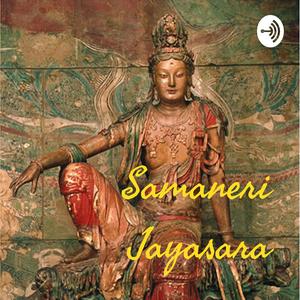
Get the free radio.net app
- Stations and podcasts to bookmark
- Stream via Wi-Fi or Bluetooth
- Supports Carplay & Android Auto
- Many other app features
Get the free radio.net app
- Stations and podcasts to bookmark
- Stream via Wi-Fi or Bluetooth
- Supports Carplay & Android Auto
- Many other app features


Wisdom of the Masters
download the app,
start listening.
